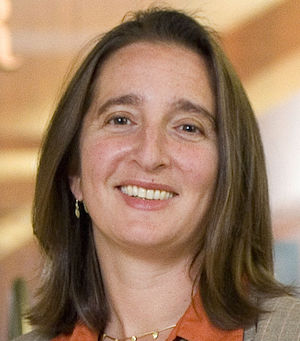
Last month, Mother Jones won a defamation case filed against it by Idaho businessman Frank VanderSloot and his company, Melaleuca Inc. — an expensive two-and-a-half year battle that dragged in Mother Jones reporter Stephanie Mencimer, CEO Monika Bauerlein, and, midway through, Peter Zuckerman, a former Idaho Falls Post Register reporter. At the center of the case were VanderSloot’s claims that Mencimer’s story on super PAC campaign donations and a corresponding tweet from Bauerlein about the piece had falsely stated VanderSloot “bashed” and “publicly out[ed] a reporter.” (VanderSloot recently settled his suit against Zuckerman, the reporter in question.)
(You can read Mother Jones’s full account of the saga here, and the court’s decision here.)
Libel insurance covered some of the magazine’s legal fees, but it was still faced with $650,000 in out-of-pocket expenses. So on Oct. 23, the Press Freedom Litigation Fund, a program run through Pierre Omidyar’s First Look Media, announced it was offering the magazine a $74,999 matching gift to offset these costs.
Since the fund launched a year and a half ago, it’s given financial support to five cases, most recently the Mother Jones/VanderSloot lawsuit and the Sacramento News & Review’s ongoing legal dispute with Mayor Kevin Johnson over some of the paper’s record requests.
 Though it’s only received about a dozen applications from outlets so far, the fund is looking to do more in the First Amendment litigation area, according to First Look general counsel Lynn Oberlander, who joined First Look early last year from The New Yorker.
Though it’s only received about a dozen applications from outlets so far, the fund is looking to do more in the First Amendment litigation area, according to First Look general counsel Lynn Oberlander, who joined First Look early last year from The New Yorker.
I spoke with Oberlander about the Litigation Fund’s aims and what’s involved in getting considered for aid. Here’s a lightly condensed and edited version of our conversation.
Of course, each time we give a grant, every press release we’ve issued has some language about the Press Freedom Litigation Fund, so I think people have seen that as well. That’s how we’ve found these cases we’ve supported so far. The more people hear about these things, the more they’ll tell their colleagues, and more people will end up having contact with me.
Then we’ll flesh it out. I’ll do some additional due diligence on top of reading the materials. I may talk with some other people about the case, I may do more reading about it, and then if I think it’s something I’d like our committee to vote on, I’ll write it up internally and bring it to a committee to see what the committee says.
I believe the idea for Mother Jones to have a matching grant was brought up by their publisher, Steve Katz. We’d actually just over the summer had a very successful matching funds campaign for Chelsea Manning’s legal defense. By no means is all of our aid going to go out in the form of matching grants, but for certain types of issues, I think matching grants are fantastic. In places where there is a diverse group of people who might want to support this issue but at much smaller levels, a matching grant can be a way of generating public interest and enthusiasm and support. And so for both Chelsea Manning and for Mother Jones, which has its own base of donors as a nonprofit, a matching grant campaign seemed like a terrific way of leveraging the fund’s money against a number of smaller donors’ abilities to contribute.
For the Sacramento News & Review, or the Sahara Reporters case [the site, which focuses on Nigerian news, is being sued by a Nigerian senator], the matching grants don’t make as much sense.
If you prosecute a whistleblower whose whistleblowing leads to a tremendous amount of public information, information that’s in the public interest, information that’s been reported on by multiple news sources all over the world, and has led to much public discussion — if you prosecute that whistleblower in a way that no other whistleblower will ever think to provide information to journalists, that is a real blow to the ability of the press to both receive information but also bring that information to citizens. We felt that aiding Chelsea’s ability to have a fair appeal was vital to the ability of the press to function as a watchdog in our society. I don’t think that’s a political donation; I think that’s in support of whistleblowers who are in support of journalists.
Our other grants are all in support of press freedom. Similarly, in the David Miranda case, David was an agent of journalists while he was traveling. And he was stopped and his journalistic materials were taken, and that is absolutely a question of press freedom.
We do believe that the First Amendment here allows for broad freedom of speech in the press. A free press is really vital to our democracy — a free press that stands truly as a fourth estate, that it serves a real structural purpose in our democracy.
In terms of other parameters: Yes, we have given money for defense in defamation cases. But we are also interested in — and the Sacramento News & Review is an example of this — helping offensive access cases for other people where they’re trying to get information under FOIA or FOIL or public records acts, or getting into courtrooms that are closed. Another parameter is that the litigation should have a public interest that is greater than that of the individual media dispute.
But our mandate is broad. This fund is for individual cases and actions, but they could be bigger or broader actions.
Stunned how many people assumed that because we won the lawsuit, we'd get our legal fees back. No! https://t.co/oBsmZZol94
— Monika Bauerlein (@MonikaBauerlein) October 23, 2015
In the Miranda case, we are supporting the appeal, which will cost quite a bit of money. In other cases, we might look to see: Are they at a motion-to-dismiss stage? How much would it cost to file a motion to dismiss? Or somebody could come to us and say: Our legal fees are covered, but we need $20,000 we don’t have to spend on experts for this litigation, which is a finite ask. The amount we’d consider is very case-specific.
For Mother Jones, the reason we gave them $74,999 was symbolic, because that’s the amount Mr. VanderSloot had sued them for. He’d claimed he had $74,999 in damages to be under the jurisdictional requirement where they could possibly move the case to a federal court. So we thought that was really a nice number.
We do expect, or we would hope, that the bulk of our gifts would be in the $15,000 to $20,000 range. We would like to be able to give that level of support to a number of different people.
We have a special email for this — litigationsupportprogram@firstlook.org — so they don’t get lost in my own inbox.
We’re hoping we can fill a hole in the First Amendment, press freedom litigation area. There are other groups that are doing terrific work in this area of representing journalists. There are First Amendment clinics at law schools. But we thought that there were those who might not be able to access the clinics, or the clinics were too busy, and they needed to go ahead and pay for an attorney. Our hope is that we’ll be able to help those folks who need financial support to be able to bring on these cases that are really important for the press — access cases, but also cases involving people who were sued in a way that threatens their ability to do reporting. We’re a small piece, but we hope we’re a helpful piece, in keeping a free press in this country and internationally.